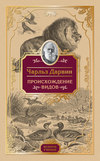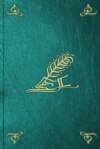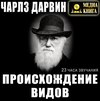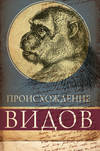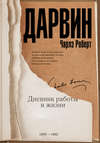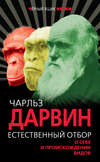Читать книгу: «More Letters of Charles Darwin — Volume 1», страница 26
CHAPTER 1.V. — EVOLUTION, 1870-1882
LETTER 235. TO J. JENNER WEIR. Down, March 17th {1870}.
It is my decided opinion that you ought to send an account to some scientific society, and I think to the Royal Society. (235/1. Mr. Jenner Weir's case is given in "Animals and Plants," Edition II., Volume I., page 435, and does not appear to have been published elsewhere. The facts are briefly that a horse, the offspring of a mare of Lord Mostyn's, which had previously borne a foal by a quagga, showed a number of quagga-like characters, such as stripes, low-growing mane, and elongated hoofs. The passage in "Animals and Plants," to which he directs Mr. Weir's attention in reference to Carpenter's objection, is in Edition I., Volume I., page 405: "It is a most improbable hypothesis that the mere blood of one individual should affect the reproductive organs of another individual in such a manner as to modify the subsequent offspring. The analogy from the direct action of foreign pollen on the ovarium and seed-coats of the mother plant strongly supports the belief that the male element acts directly on the reproductive organs of the female, wonderful as is this action, and not through the intervention of the crossed embryo." For references to Mr. Galton's experiments on transfusion of blood, see Letter 273.) I would communicate it if you so decide. You might give as a preliminary reason the publication in the "Transactions" of the celebrated Morton case and the pig case by Mr. Giles. You might also allude to the evident physiological importance of such facts as bearing on the theory of generation. Whether it would be prudent to allude to despised pangenesis I cannot say, but I fully believe pangenesis will have its successful day. Pray ascertain carefully the colour of the dam and sire. See about duns in my book {"Animals and Plants"}, Volume I., page 55. The extension of the mane and form of hoofs are grand new facts. Is the hair of your horse at all curly? for {an} observed case {is} given by me (Volume II., page 325) from Azara of correlation of forms of hoof with curly hairs. See also in my book (Volume I., page 55; Volume II., page 41) how exceedingly rare stripes are on the faces of horses in England. Give the age of your horse.
You are aware that Dr. Carpenter and others have tried to account for the effects of a first impregnation from the influence of the blood of the crossed embryo; but with physiologists who believe that the reproductive elements are actually formed by the reproductive glands, this view is inconsistent. Pray look at what I have said in "Domestic Animals" (Volume I., pages 402-5) against this doctrine. It seems to me more probable that the gemmules affect the ovaria alone. I remember formerly speculating, like you, on the assertion that wives grow like their husbands; but how impossible to eliminate effects of imitation and same habits of life, etc. Your letter has interested me profoundly.
P.S. — Since publishing I have heard of additional cases — a very good one in regard to Westphalian pigs crossed by English boar, and all subsequent offspring affected, given in "Illust. Landwirth-Zeitung," 1868, page 143.
I have shown that mules are often striped, though neither parent may be striped, — due to ancient reversion. Now, Fritz Muller writes to me from S. Brazil: "I have been assured, by persons who certainly never had heard of Lord Morton's mare, that mares which have borne hybrids to an ass are particularly liable to produce afterwards striped ass-colts." So a previous fertilisation apparently gives to the subsequent offspring a tendency to certain characters, as well as characters actually possessed by the first male.
In the reprint (not called a second edition) of my "Domestic Animals" I give a good additional case of subsequent progeny of hairless dog being hairy from effects of first impregnation.
P.S. 2nd. The suggestion, no doubt, is superfluous, but you ought, I think, to measure extension of mane beyond a line joining front or back of ears, and compare with horse. Also the measure (and give comparison with horse), length, breadth, and depth of hoofs.
LETTER 236. TO J.D. HOOKER. Down, July 12th {1870}.
Your conclusion that all speculation about preordination is idle waste of time is the only wise one; but how difficult it is not to speculate! My theology is a simple muddle; I cannot look at the universe as the result of blind chance, yet I can see no evidence of beneficent design or indeed of design of any kind, in the details. As for each variation that has ever occurred having been preordained for a special end, I can no more believe in it than that the spot on which each drop of rain falls has been specially ordained.
Spontaneous generation seems almost as great a puzzle as preordination. I cannot persuade myself that such a multiplicity of organisms can have been produced, like crystals, in Bastian's (236/1. On September 2nd, 1872, Mr. Darwin wrote to Mr. Wallace, in reference to the latter's review of "The Beginnings of Life," by H.C. Bastian (1872), in "Nature," 1872, pages 284-99: "At present I should prefer any mad hypothesis, such as that every disintegrated molecule of the lowest forms can reproduce the parent-form; and that these molecules are universally distributed, and that they do not lose their vital power until heated to such a temperature that they decompose like dead organic particles.") solutions of the same kind. I am astonished that, as yet, I have met with no allusion to Wyman's positive statement (236/2. "Observations and Experiments on Living Organisms in Heated Water," by Jeffries Wyman, Prof. of Anatomy, Harvard Coll. ("Amer. Journ. Sci." XLIV., 1867, page 152.) Solutions of organic matter in hermetically sealed flasks were immersed in boiling water for various periods. "No infusoria of any kind appeared if the boiling was prolonged beyond a period of five hours.") that if the solutions are boiled for five hours no organisms appear; yet, if my memory serves me, the solutions when opened to air immediately became stocked. Against all evidence, I cannot avoid suspecting that organic particles (my "gemmules" from the separate cells of the lower creatures!) will keep alive and afterwards multiply under proper conditions.
What an interesting problem it is.
LETTER 237. TO W.B. TEGETMEIER. Down, July 15th {1870}.
It is very long since I have heard from you, and I am much obliged for your letter. It is good news that you are going to bring out a new edition of your Poultry book (237/1. "The Poultry Book," 1872.), and you are quite at liberty to use all my materials. Thanks for the curious case of the wild duck variation: I have heard of other instances of a tendency to vary in one out of a large litter or family. I have too many things in hand at present to profit by your offer of the loan of the American Poultry book.
Pray keep firm to your idea of working out the subject of analogous variations (237/2. "By this term I mean that similar characters occasionally make their appearance in the several varieties or races descended from the same species, and more rarely in the offspring of widely distinct species" ("Animals and Plants," II., Edition II., page 340).) with pigeons; I really think you might thus make a novel and valuable contribution to science. I can, however, quite understand how much your time must be occupied with the never-ending, always-beginning editorial cares.
I keep much as usual, and crawl on with my work.
LETTER 238. TO J.D. HOOKER. Down, September 27th {1870}.
Yours was a splendid letter, and I was very curious to hear something about the Liverpool meeting (238/1. Mr. Huxley was President of the British Association at Liverpool in 1870. His Presidential Address on "Biogenesis and Abiogenesis" is reprinted in his collected Essays, VIII., page 229. Some account of the meeting is given in Huxley's "Life and Letters," Volume I., pages 332, 336.), which I much wished to be successful for Huxley's sake. I am surprised that you think his address would not have been clear to the public; it seemed to me as clear as water. The general line of his argument might have been answered by the case of spontaneous combustion: tens of thousands of cases of things having been seen to be set on fire would be no true argument against any one who maintained that flames sometimes spontaneously burst forth. I am delighted at the apotheosis of Sir Roderick; I can fancy what neat and appropriate speeches he would make to each nobleman as he entered the gates of heaven. You ask what I think about Tyndall's lecture (238/2. Tyndall's lecture was "On the Scientific Uses of the Imagination."): it seemed to me grand and very interesting, though I could not from ignorance quite follow some parts, and I longed to tell him how immensely it would have been improved if all the first part had been made very much less egotistical. George independently arrived at the same conclusion, and liked all the latter part extremely. He thought the first part not only egotistical, but rather clap-trap.
How well Tyndall puts the "as if" manner of philosophising, and shows that it is justifiable. Some of those confounded Frenchmen have lately been pitching into me for using this form of proof or argument.
I have just read Rolleston's address in "Nature" (238/3. Presidential Address to the Biological Section, British Association, 1870. "Nature," September 22nd, 1870, page 423. Rolleston referred to the vitality of seeds in soil, a subject on which Darwin made occasional observations. See "Life and Letters," II., page 65.): his style is quite unparalleled! I see he quotes you about seed, so yesterday I went and observed more carefully the case given in the enclosed paper, which perhaps you might like to read and burn.
How true and good what you say about Lyell. He is always the same; Dohrn was here yesterday, and was remarking that no one stood higher in the public estimation of Germany than Lyell.
I am truly and profoundly glad that you are thinking of some general work on Geographical Distribution, or so forth; I hope to God that your incessant occupations may not interrupt this intention. As for my book, I shall not have done the accursed proofs till the end of November (238/4. The proofs of the "Descent of Man" were finished on January 15th, 1871.): good Lord, what a muddled head I have got on my wretched old shoulders.
LETTER 239. TO H. SETTEGAST. Down, September 29th, 1870.
I am very much obliged for your kind letter and present of your beautiful volume. (239/1. "Die Thierzucht," 1868.) Your work is not new to me, for I heard it so highly spoken of that I procured a copy of the first edition. It was a great gratification to me to find a man who had long studied with a philosophical spirit our domesticated animals, and who was highly competent to judge, agreeing to a large extent with my views. I regretted much that I had not known your work when I published my last volumes.
I am surprised and pleased to hear that science is not quite forgotten under the present exciting state of affairs. Every one whom I know in England is an enthusiastic wisher for the full and complete success of Germany.
P.S. I will give one of my two copies of your work to some public scientific library in London.
LETTER 240. TO THE EDITOR OF THE "PALL MALL GAZETTE." Down, March 24th {1871}.
Mr. Darwin presents his compliments to the Editor, and would be greatly obliged if he would address and post the enclosed letter to the author of the two admirable reviews of the "Descent of Man." (240/1. The notices of the "Descent of Man," published in the "Pall Mall Gazette" of March 20th and 21st, 1871, were by Mr. John Morley. We are indebted to the Editor of the "Pall Mall Gazette" for kindly allowing us to consult his file of the journal.)
LETTER 241. TO JOHN MORLEY. Down, March 24th, 1871.
From the spirit of your review in the "Pall Mall Gazette" of my last book, which has given me great pleasure, I have thought that you would perhaps inform me on one point, withholding, if you please, your name.
You say that my phraseology on beauty is "loose scientifically, and philosophically most misleading." (241/1. "Mr. Darwin's work is one of those rare and capital achievements of intellect which effect a grave modification throughout all the highest departments of the realm of opinion...There is throughout the description and examination of Sexual Selection a way of speaking of beauty, which seems to us to be highly unphilosophical, because it assumes a certain theory of beauty, which the most competent modern thinkers are too far from accepting, to allow its assumption to be quite judicious...Why should we only find the aesthetic quality in birds wonderful, when it happens to coincide with our own? In other words, why attribute to them conscious aesthetic qualities at all? There is no more positive reason for attributing aesthetic consciousness to the Argus pheasant than there is for attributing to bees geometric consciousness of the hexagonal prisms and rhombic plates of the hive which they so marvellously construct. Hence the phraseology which Mr. Darwin employs in this part of the subject, though not affecting the degree of probability which may belong to this theory, seems to us to be very loose scientifically, and philosophically most misleading." — "Pall Mall Gazette.") This is not at all improbable, as it is almost a lifetime since I attended to the philosophy of aesthetics, and did not then think that I should ever make use of my conclusions. Can you refer me to any one or two books (for my power of reading is not great) which would illumine me? or can you explain in one or two sentences how I err? Perhaps it would be best for me to explain what I mean by the sense of beauty in its lowest stage of development, and which can only apply to animals. When an intense colour, or two tints in harmony, or a recurrent and symmetrical figure please the eye, or a single sweet note pleases the ear, I call this a sense of beauty; and with this meaning I have spoken (though I now see in not a sufficiently guarded manner) of a taste for the beautiful being the same in mankind (for all savages admire bits of bright cloth, beads, plumes, etc.) and in the lower animals. If the blue and yellow plumage of a macaw (241/2. "What man deems the horrible contrasts of yellow and blue attract the macaw, while ball-and-socket-plumage attracts the Argus pheasant" — "Pall Mall Gazette," March 21st, 1871, page 1075.) pleases the eye of this bird, I should say that it had a sense of beauty, although its taste was bad according to our standard. Now, will you have the kindness to tell me how I can learn to see the error of my ways? Of course I recognise, as indeed I have remarked in my book, that the sense of beauty in the case of scenery, pictures, etc., is something infinitely complex, depending on varied associations and culture of the mind. From a very interesting review in the "Spectator," and from your and Wallace's review, I perceive that I have made a great oversight in not having said what little I could on the acquisition of the sense for the beautiful by man and the lower animals. It would indeed be an immense advantage to an author if he could read such criticisms as yours before publishing. At page 11 of your review you accidentally misquote my words placed by you within inverted commas, from my Volume II., page 354: I say that "man cannot endure any great change," and the omitted words "any great" make all the difference in the discussion. (241/3. "Mr. Darwin tells us, and gives us excellent reasons for thinking, that 'the men of each race prefer what they are accustomed to behold; they cannot endure change.' Yet is there not an inconsistency between this fact and the other that one race differs from another exactly because novelties presented themselves, and were eagerly seized and propagated?")
Permit me to add a few other remarks. I believe your criticism is quite just about my deficient historic spirit, for I am aware of my ignorance in this line. (241/4. "In the historic spirit, however, Mr. Darwin must fairly be pronounced deficient. When, for instance, he speaks of the 'great sin of slavery' having been general among primitive nations, he forgets that, though to hold a slave would be a sinful degradation to a European to-day, the practice of turning prisoners of war into slaves, instead of butchering them, was not a sin at all, but marked a decided improvement in human manners.") On the other hand, if you should ever be led to read again Chapter III., and especially Chapter V., I think you will find that I am not amenable to all your strictures; though I felt that I was walking on a path unknown to me and full of pitfalls; but I had the advantage of previous discussions by able men. I tried to say most emphatically that a great philosopher, law-giver, etc., did far more for the progress of mankind by his writings or his example than by leaving a numerous offspring. I have endeavoured to show how the struggle for existence between tribe and tribe depends on an advance in the moral and intellectual qualities of the members, and not merely on their capacity of obtaining food. When I speak of the necessity of a struggle for existence in order that mankind should advance still higher in the scale, I do not refer to the MOST, but "to the MORE highly gifted men" being successful in the battle for life; I referred to my supposition of the men in any country being divided into two equal bodies — viz., the more and the less highly gifted, and to the former on an average succeeding best.
But I have much cause to apologise for the length of this ill-expressed letter. My sole excuse is the extraordinary interest which I have felt in your review, and the pleasure which I have experienced in observing the points which have attracted your attention. I must say one word more. Having kept the subject of sexual selection in my mind for very many years, and having become more and more satisfied with it, I feel great confidence that as soon as the notion is rendered familiar to others, it will be accepted, at least to a much greater extent than at present. With sincere respect and thanks...
LETTER 242. TO JOHN MORLEY. Down, April 14th {1871}.
As this note requires no answer, I do not scruple to write a few lines to say how faithful and full a resume you have given of my notions on the moral sense in the "Pall Mall," and to make a few extenuating or explanatory remarks. (242/1. "What is called the question of the moral sense is really two: how the moral faculty is acquired, and how it is regulated. Why do we obey conscience or feel pain in disobeying it? And why does conscience prescribe one kind of action and condemn another kind? To put it more technically, there is the question of the subjective existence of conscience, and there is the question of its objective prescriptions. First, why do I think it obligatory to do my duty? Second, why do I think it my duty to do this and not do that? Although, however, the second question ought to be treated independently, for reasons which we shall presently suggest, the historical answer to it, or the various grounds on which men have identified certain sorts of conduct with duty, rather than conduct of the opposite sorts, throws light on the other question of the conditions of growth of the idea of duty as a sovereign and imperial director. Mr. Darwin seems to us not to have perfectly recognised the logical separation between the two sides of the moral sense question. For example, he says (i. 97) that 'philosophers of the derivative school of morals formerly assumed that the foundation of morality lay in a form of Selfishness; but more recently in the Greatest Happiness principle.' But Mr. Mill, to whom Mr. Darwin refers, has expressly shown that the Greatest Happiness principle is a STANDARD, and not a FOUNDATION, and that its validity as a standard of right and wrong action is just as tenable by one who believes the moral sense to be innate, as by one who holds that it is acquired. He says distinctly that the social feelings of mankind form 'the natural basis of sentiment for utilitarian morality.' So far from holding the Greatest Happiness principle to be the foundation of morality, he would describe it as the forming principle of the superstructure of which the social feelings of mankind are the foundation. Between Mr. Darwin and utilitarians, as utilitarians, there is no such quarrel as he would appear to suppose. The narrowest utilitarian could say little more than Mr. Darwin says (ii. 393): 'As all men desire their own happiness, praise or blame is bestowed on actions and motives according as they tend to this end; and, as happiness is an essential part of the general good, the Greatest Happiness principle INDIRECTLY serves as a NEARLY safe standard of right and wrong.' It is perhaps not impertinent to suspect that the faltering adverbs which we have printed in italics indicate no more than the reluctance of a half-conscious convert to pure utilitarianism. In another place (i. 98) he admits that 'as all wish for happiness, the Greatest Happiness principle will have become a most important secondary guide and object, the social instincts, including sympathy, always serving as the primary impulse and guide.' This is just what Mr. Mill says, only instead of calling the principle a secondary guide, he would call it a standard, to distinguish it from the social impulse, in which, as much as Mr. Darwin, he recognises the base and foundation." — "Pall Mall Gazette," April 12th, 1871.) How the mistake which I have made in speaking of greatest happiness as the foundation of morals arose, is utterly unintelligible to me: any time during the last several years I should have laughed such an idea to scorn. Mr. Lecky never made a greater blunder, and your kindness has made you let me off too easily. (242/2. In the first edition of the "Descent of Man," I., page 97, Mr. Lecky is quoted as one of those who assumed that the "foundation of morality lay in a form of selfishness; but more recently in the 'greatest happiness' principle." Mr. Lecky's name is omitted in this connection in the second edition, page 120. In this edition Mr. Darwin makes it clearer that he attaches most importance to the social instinct as the "primary impulse and guide.") With respect to Mr. Mill, nothing would have pleased me more than to have relied on his great authority with respect to the social instincts, but the sentence which I quote at {Volume I.} page 71 ("if, as is my own belief, the moral feelings are not innate, but acquired, they are not for that reason less natural") seems to me somewhat contradictory with the other words which I quote, so that I did not know what to think; more especially as he says so very little about the social instincts. When I speak of intellectual activity as the secondary basis of conscience, I meant in my own mind secondary in period of development; but no one could be expected to understand so great an ellipse. With reference to your last sentence, do you not think that man might have retrograded in his parental, marriage, and other instincts without having retrograded in his social instincts? and I do not think that there is any evidence that man ever existed as a non-social animal. I must add that I have been very glad to read your remarks on the supposed case of the hive-bee: it affords an amusing contrast with what Miss Cobbe has written in the "Theological Review." (242/3. Mr. Darwin says ("Descent of Man" Edition I., Volume I., page 73; Edition II., page 99), "that if men lived like bees our unmarried females would think it a sacred duty to kill their brothers." Miss Cobbe remarks on this "that the principles of social duty would be reversed" ("Theological Review," April 1872). Mr. Morley, on the other hand, says of Darwin's assertion, that it is "as reassuring as the most absolute of moralists could desire. For it is tantamount to saying that the foundations of morality, the distinctions of right and wrong, are deeply laid in the very conditions of social existence; that there is in face of these conditions a positive and definite difference between the moral and the immoral, the virtuous and the vicious, the right and the wrong, in the actions of individuals partaking of that social existence.") Undoubtedly the great principle of acting for the good of all the members of the same community, and therefore the good of the species, would still have held sovereign sway.
LETTER 243. TO J.D. HOOKER.
(243/1. Sir Joseph Hooker wrote (August 5th, 1871) to Darwin about Lord Kelvin's Presidential Address at the Edinburgh meeting of the British Association: "It seems to me to be very able indeed; and what a good notion it gives of the gigantic achievement of mathematicians and physicists! — it really made one giddy to read of them. I do not think Huxley will thank him for his reference to him as a positive unbeliever in spontaneous generation — these mathematicians do not seem to me to distinguish between un-belief and a-belief. I know no other name for the state of mind that is produced under the term scepticism. I had no idea before that pure Mathematics had achieved such wonders in practical science. The total absence of any allusion to Tyndall's labours, even when comets are his theme, seems strange to me.")
Haredene, Albury, Guildford, August 6th {1871}.
I have read with greatest interest Thomson's address; but you say so EXACTLY AND FULLY all that I think, that you have taken all the words from my mouth; even about Tyndall. It is a gain that so wonderful a man, though no naturalist, should become a convert to evolution; Huxley, it seems, remarked in his speech to this effect. I should like to know what he means about design, — I cannot in the least understand, for I presume he does not believe in special interpositions. (243/2. See "British Association Report," page cv. Lord Kelvin speaks very doubtfully of evolution. After quoting the concluding passage of the "Origin," he goes on, "I have omitted two sentences...describing briefly the hypothesis of 'the origin of species by Natural Selection,' because I have always felt that this hypothesis does not contain the true theory of evolution, IF EVOLUTION THERE HAS BEEN in biology" (the italics are not in the original). Lord Kelvin then describes as a "most valuable and instructive criticism," Sir John Herschel's remark that the doctrine of Natural Selection is "too like the Laputan method of making books, and that it did not sufficiently take into account a continually guiding and controlling intelligence." But it should be remembered that it was in this address of Lord Kelvin's that he suggested the possibility of "seed-bearing meteoric stones moving about through space" inoculating the earth with living organisms; and if he assumes that the whole population of the globe is to be traced back to these "moss-grown fragments from the ruins of another world," it is obvious that he believes in a form of evolution, and one in which a controlling intelligence is not very obvious, at all events not in the initial and all-important stage.) Herschel's was a good sneer. It made me put in the simile about Raphael's Madonna, when describing in the "Descent of Man" the manner of formation of the wondrous ball-and-socket ornaments, and I will swear to the truth of this case. (243/3. See "Descent of Man," II., page 141. Darwin says that no one will attribute the shading of the "eyes" on the wings of the Argus pheasant to the "fortuitous concourse of atoms of colouring-matter." He goes on to say that the development of the ball-and-socket effect by means of Natural Selection seems at first as incredible as that "one of Raphael's Madonnas should have been formed by the selection of chance daubs of paint." The remark of Herschel's, quoted in "Life and Letters," II., page 241, that the "Origin" illustrates the "law of higgledy-piggledy," is probably a conversational variant of the Laputan comparison which gave rise to the passage in the "Descent of Man" (see Letter 130).)
You know the oak-leaved variety of the common honeysuckle; I could not persuade a lady that this was not the result of the honeysuckle climbing up a young oak tree! Is this not like the Viola case?
LETTER 244. TO JOHN LUBBOCK (LORD AVEBURY). Haredene, Albury, Guildford, August 12th {1871}.
I hope the proof-sheets having been sent here will not inconvenience you. I have read them with infinite satisfaction, and the whole discussion strikes me as admirable. I have no books here, and wish much I could see a plate of Campodea. (244/1. "On the Origin of Insects." By Sir John Lubbock, Bart. "Journ. Linn. Soc. (Zoology)," Volume XI., 1873, pages 422-6. (Read November 2nd, 1871.) In the concluding paragraph the author writes, "If these views are correct the genus Campodea {a beetle} must be regarded as a form of remarkable interest, since it is the living representative of a primaeval type from which not only the Collembola and Thysanura, but the other great orders of insects, have all derived their origin." (See also "Brit. Assoc. Report," 1872, page 125 — Address by Sir John Lubbock; and for a figure of Campodea see "Nature," Volume VII., 1873, page 447.) I never reflected much on the difficulty which you indicate, and on which you throw so much light. (244/2. The difficulty alluded to is explained by the first sentence of Lord Avebury's paper. "The Metamorphoses of this group (Insects) have always seemed to me one of the greatest difficulties of the Darwinian theory...I feel great difficulty in conceiving by what natural process an insect with a suctorial mouth, like that of a gnat or butterfly, could be developed from a powerfully mandibulate type like the orthoptera, or even from the neuroptera...A clue to the difficulty may, I think, be found in the distinction between the developmental and adaptive changes to which I called the attention of the Society in a previous memoir."
Покупайте книги и получайте бонусы в Литрес, Читай-городе и Буквоеде.
Участвовать в бонусной программе











